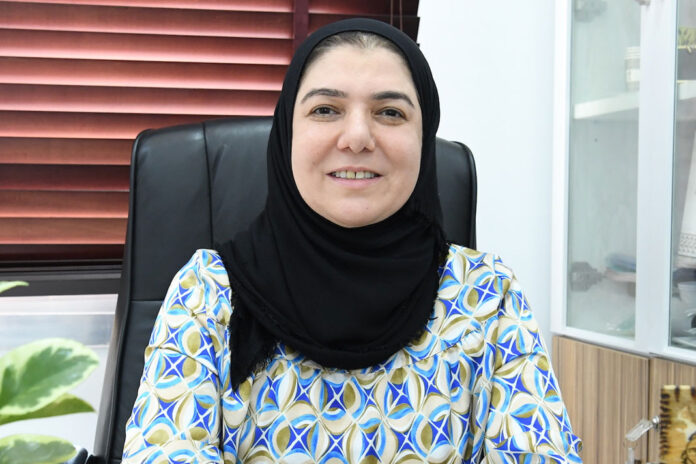Dr. Siddiqa Hussain Al Meer, a consultant child, adult and family therapist at Gulf Gate Medical Complex, has devoted her career to improving the emotional and psychological well-being of young people and their families in Bahrain. A graduate of Arabian Gulf University with a specialisation in child and adolescent psychiatry from King’s College in London, as well as being a member of the Royal College of Psychiatrists (RCPsych) and the United Kingdom Council for Psychotherapy (UKCP), she brings a wealth of experience to her practice. Her work encompasses individual therapy for young and adult clients, family therapy, holistic therapy and promoting healthier dynamics and long-term well-being.
Dr. Al Meer’s approach is multifaceted, focusing on children’s and adolescents’ emotional, behavioural and developmental challenges. “I offer assessments to identify mental health disorders, learning disabilities or behavioural issues,” she explains. “In family therapy, I aim to improve communication, resolve conflicts and strengthen relationships. This includes parenting support and education, which are essential for overall well-being.” Her goal is to empower families to function cohesively, providing young patients with a supportive environment to thrive.
The post-pandemic period has brought unique challenges for families in Bahrain, Dr. Al Meer observes. “We’ve seen a rise in behavioural problems such as aggression, defiance, or social withdrawal among children. Parents often feel frustrated and confused, not knowing how to address these issues,” she says. Adolescents face their own pressures, including academic stress, identity exploration and social expectations. “Therapy helps them learn how to manage these pressures in healthy ways, avoiding harmful coping mechanisms like withdrawal or anger.”
Family involvement, she stresses, is central to her therapeutic process. “I work closely with families to develop effective discipline strategies and address underlying issues such as anxiety, trauma or social difficulties,” she explains. “This not only helps children express themselves better but also builds their emotional intelligence, which is critical for boosting self-esteem, navigating relationships and managing stress.”
Dr. Al Meer further highlights the growing mental health concerns among teenagers, noting a rise in anxiety, depression and mood disorders. “Adolescents today face unique pressures from academic expectations, social media, family dynamics and peer relationships,” she says. “Creating a safe, non-judgmental space allows them to express their thoughts and emotions freely. Through adolescent-centred therapy, I guide them in building resilience and developing strategies to cope with these challenges effectively.”
In response to parents’ hesitations about therapy, Dr. Al Meer reassures them that seeking help is a positive step. “It’s completely normal to feel uncertain,” she says. “But therapy is a proactive decision that leads to healthier relationships and emotional strength. Addressing issues early – whether it’s a mental health concern, family conflict or academic pressure – ensures better outcomes in the future.”
In her practice, Dr. Al Meer has witnessed the transformative power of therapy in fostering healing, growth and happiness. “It’s a commitment to your child’s and your own mental and emotional health,” she concludes, underscoring the value of therapy for families striving for well-being.





